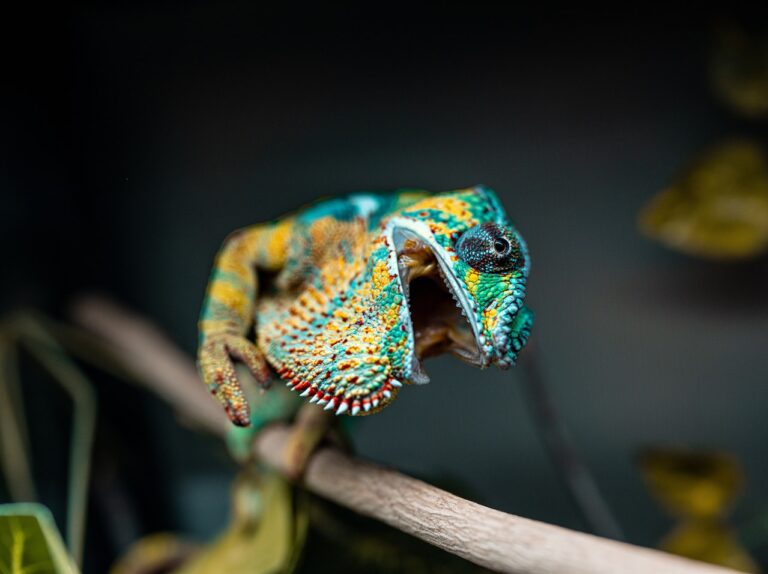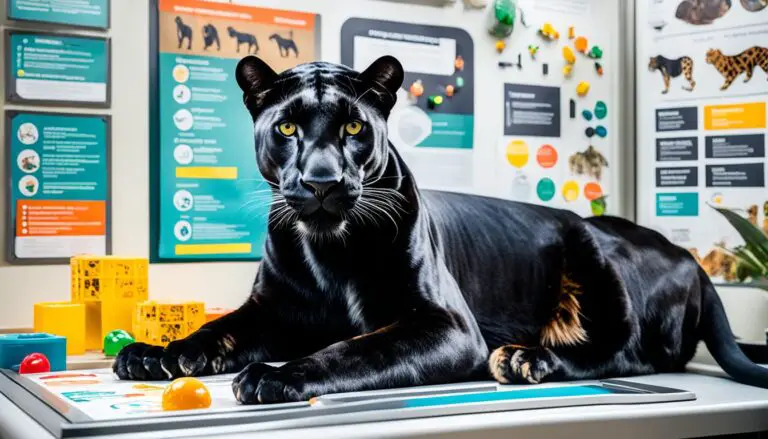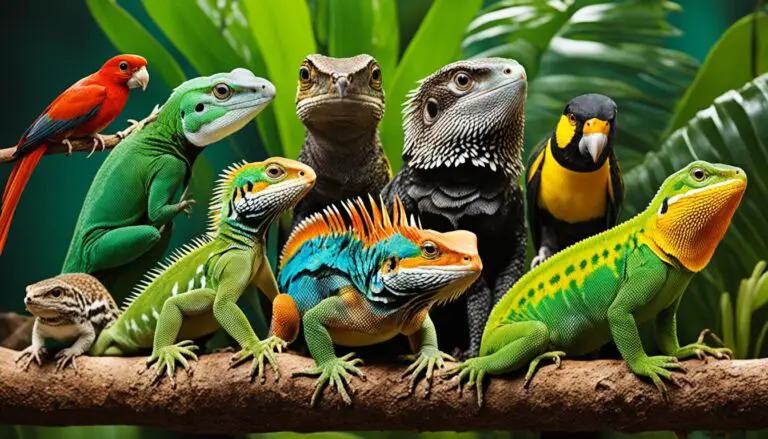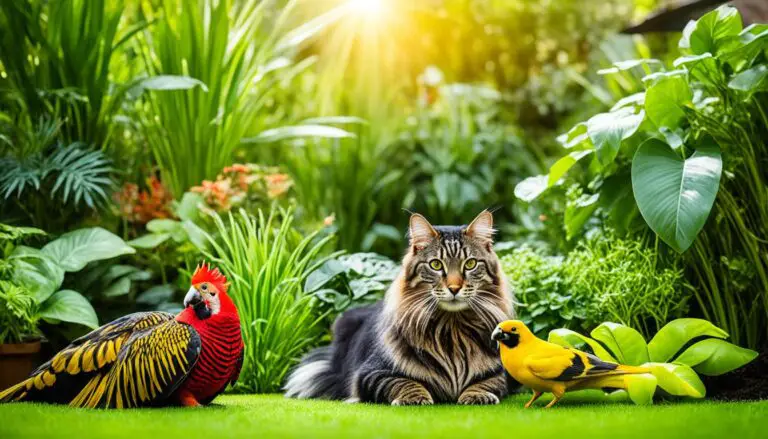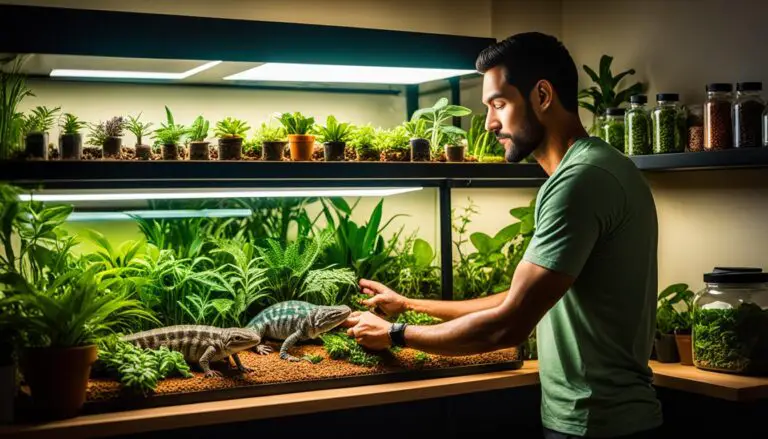Exotic Pet Care for Small Apartments (Guide)
Owning a pet can bring joy and companionship to your life, but living in a small apartment can present challenges when it comes to choosing the right pet. Thankfully, there are many exotic pets that are well-suited to apartment living. In this guide, we will explore the unique considerations and tips for caring for exotic pets in small spaces, including assessing your space for pet restrictions and suitability, the unique traits of exotic pets that fit apartment living, and legal considerations and landlord policies.
Key Takeaways:
- Choose apartment-friendly exotic pets that are suitable for small spaces.
- Assess your apartment for any pet restrictions and understand landlord policies.
- Create a comfortable habitat in your limited space, considering temperature, humidity, and enclosure requirements.
- Learn about the specific care routines and necessities of apartment-friendly exotic pets like rabbits, ferrets, and guinea pigs.
- Ensure proper nutrition and feeding guidelines based on the dietary needs of your exotic pet.
- Engage and interact with your pet to keep them mentally and physically stimulated in a small apartment.
Understanding Exotic Pet Care for Small Apartments
Living in a small apartment doesn’t mean you can’t have a pet. However, there are important considerations to keep in mind when choosing an exotic pet that is suitable for your limited space. In this section, we will explore how to assess your space for pet restrictions and suitability, the unique traits of exotic pets that fit apartment living, and the legal considerations and landlord policies you need to be aware of.
Assessing Your Space for Pet Restrictions and Suitability
Before bringing a pet into your small apartment, it’s essential to understand any pet restrictions that may be in place. Check your lease agreement or contact your property manager to clarify what types of pets are allowed in your unit. Doing so will help you avoid potential conflicts and ensure you choose a pet that complies with your apartment’s guidelines.
Unique Traits of Exotic Pets That Fit Apartment Living
Not all exotic pets are well-suited to small spaces. Some pets require more room to roam and exercise, while others are content in a smaller habitat. It’s crucial to research each pet’s size, activity level, and specific needs before making a decision. By understanding their unique traits, you can choose an exotic pet that will thrive in your apartment and provide them with a comfortable living environment.
Legal Considerations and Landlord Policies
Owning an exotic pet in an apartment may come with legal considerations and certain landlord policies. Some pets may be restricted or require a special permit to be kept as pets. Familiarize yourself with the laws and regulations regarding exotic pets in your state to ensure you are compliant. Additionally, open communication with your landlord or property management regarding your intention to have an exotic pet can help you avoid any misunderstandings or potential conflicts.
Creating a Comfortable Habitat in Limited Space
In order to provide a comfortable living environment for your exotic pet in a small apartment, you’ll need to carefully plan and create a suitable habitat. Consider the space available, temperature and humidity requirements, and the type of enclosure or tank needed for your pet. Take into account the need for hiding spots, bedding, and other essential elements to ensure your pet feels secure and comfortable in their limited space.

Creating a habitat in a small apartment requires maximizing the available space to provide the necessary features for your pet. Here are some considerations when designing their habitat:
- Size: Determine the appropriate size of the habitat based on the needs of your pet. Consider their size and physical activity requirements.
- Enclosure: Choose the right enclosure or tank that suits your pet’s habitat needs. Ensure it is secure and provides adequate ventilation.
- Temperature and Humidity: Research the specific temperature and humidity requirements of your exotic pet. Create a suitable microclimate within the habitat using heating or cooling devices, if necessary.
- Hiding Spots: Incorporate hiding spots within the habitat to provide a sense of security for your pet. These spots can be in the form of caves, logs, or tunnels.
- Bedding: Select appropriate bedding materials that are safe and comfortable for your pet. This can include substrates, foliage, or other elements that mimic their natural environment.
- Enrichment: Include various types of enrichment, such as toys, climbing structures, and foraging opportunities, to keep your pet mentally stimulated.
By carefully considering these aspects and creating a well-designed habitat, you can ensure that your exotic pet thrives in the limited space of your small apartment. Providing them with a comfortable and enriched environment is essential for their overall well-being.
Apartment-Friendly Exotic Pets and Their Specific Needs
When it comes to choosing an exotic pet that is suitable for apartment living, there are several options to consider. In this section, we will explore the specific needs of apartment-friendly exotic pets, including rabbits, ferrets, and guinea pigs.
Rabbit Care Routines for Apartment Dwellers
Rabbits are a popular choice for apartment dwellers, thanks to their small size and friendly nature. However, they do require specific care routines to thrive in a confined space. To ensure the well-being of your rabbit in an apartment, consider the following:
- Provide enough space for your rabbit to roam and exercise. Consider setting up a playpen or dedicated rabbit-proofed area.
- Litter box train your rabbit to keep the living area clean and odor-free.
- Create a safe environment by securing electrical cords and blocking off access to potentially hazardous areas, such as under furniture.
The Essentials of Ferret Proofing Your Home

Ferrets are playful and active pets that can bring lots of joy to apartment living. However, their mischievous nature requires extra precautions. Here are some tips for ferret proofing your home:
- Secure electrical wires and cables to prevent chewing and potential hazards.
- Block off small spaces where ferrets can hide or get stuck.
- Ensure all household plants are non-toxic to ferrets.
Guinea Pigs: Room Requirements and Social Needs
Guinea pigs are small, social creatures that can thrive in apartment settings. To meet their specific needs, consider the following:
- Provide a spacious cage with plenty of room for exercise and social interaction.
- Offer a variety of hiding spots and tunnels to mimic their natural habitat.
- Ensure your guinea pig receives regular social interaction and mental stimulation.
By understanding the unique care routines and needs of apartment-friendly exotic pets like rabbits, ferrets, and guinea pigs, you can ensure a happy and healthy living environment for both you and your pet.
Nutrition and Feeding Guidelines for Exotic Pets
Understanding Reptile Dietary Needs
Proper nutrition is essential for the health and well-being of your exotic pet. This is particularly true for reptiles, as their dietary needs can be quite specific. When it comes to feeding your reptile companion, it’s important to understand the types of food, supplements, and feeding frequency that will support their overall health.
Reptiles have diverse dietary requirements, depending on their species. Some reptiles are herbivores, while others are carnivores or omnivores. It’s crucial to research and understand the specific dietary needs of your particular reptile species.
Common reptile foods include fresh fruits, vegetables, insects, and small vertebrates. These food items can provide essential nutrients such as vitamins, minerals, and protein. Additionally, some reptiles may require specific supplements to ensure they receive all the necessary nutrients.
Feeding frequency is another important factor to consider. While some reptiles require daily feedings, others may only need to be fed once or twice a week. Understanding your reptile’s natural feeding habits and adjusting their diet accordingly is crucial for maintaining optimal health.
Feeding Small Mammals in Your Apartment: Best Practices
Feeding small mammals in an apartment setting requires careful consideration to ensure their dietary needs are met while taking into account limited space. Whether you have a rabbit, guinea pig, or ferret, following best practices can help keep your furry friend healthy and happy.
Portion sizes are important when it comes to feeding small mammals. It’s essential to provide them with an appropriate amount of food to maintain a healthy weight. Overfeeding can lead to obesity and associated health problems, while underfeeding can result in malnutrition. Consult with your veterinarian to determine the recommended portion sizes for your specific pet.
Quality of food is another crucial factor. Select a high-quality diet that is appropriate for the species and age of your pet. Whether it’s specially formulated pellets, fresh produce, or occasional treats, ensuring a balanced and nutritious diet is vital for their overall well-being.
Some small mammals may have special dietary requirements, such as a need for specific vitamins or minerals. Additionally, certain pets, like ferrets, have strict dietary needs that must be met to prevent health issues. Research and consult with a veterinarian to ensure you are providing the best diet for your specific pet.
By following these nutrition and feeding guidelines, you can provide your exotic pet with the proper diet they need to thrive in your apartment setting.
Enrichment and Interaction: Keeping Your Exotic Pet Engaged
Keeping your exotic pet engaged and stimulated is crucial for their overall well-being. In a limited apartment space, it’s important to provide them with activities, toys, and interaction methods that cater to their unique needs. By doing so, you can ensure that your pet remains mentally and physically stimulated, leading to a happy and fulfilling life.
Exotic pets, just like their wild counterparts, need opportunities for exploration and mental stimulation to prevent boredom and promote a healthy lifestyle. Here are a few ideas to enrich your pet’s environment:
“A happy pet is an engaged pet.”
- Provide a variety of toys that cater to your pet’s instincts and preferences. For example, if you have a bird, offer toys that encourage climbing and foraging. If you have a small mammal, consider puzzle toys that dispense treats.
- Create a stimulating habitat by incorporating elements like branches, tunnels, and hiding spots. This will mimic their natural environment and provide opportunities for exploration and play.
- Set aside dedicated playtime with your pet. Engage them in interactive activities such as chasing a wand toy with feathers or playing fetch with a small ball.
- Introduce different textures and materials for your pet to explore. For example, provide a mix of soft bedding, rough surfaces, and chewable toys to keep their senses engaged.
- Rotate toys and provide new ones regularly to prevent boredom. This will keep your pet’s interest and curiosity levels high.
Remember, each exotic pet has unique needs and preferences, so it’s essential to research and understand what specific activities and toys are suitable for your pet. Additionally, make sure to supervise playtime and remove any potentially hazardous items from their environment.
By providing enriching and interactive experiences for your exotic pet, you can ensure that they lead a fulfilling and happy life in your small apartment.
Conclusion
Caring for an exotic pet in a small apartment requires careful consideration and planning, but with the right information and resources, it can be a fulfilling and rewarding experience. By assessing your space, understanding the specific needs of your chosen pet, and providing a comfortable and enriched environment, you can create a happy home for your exotic pet in a compact space.
Remember to always comply with legal considerations and communicate with your landlord for a smooth and enjoyable pet ownership experience. Being aware of any pet restrictions or permits needed will help ensure a harmonious living environment and avoid any unnecessary complications.
In summary, with a little creativity and dedication, apartment living can be suitable for a wide range of exotic pets. Remember to prioritize their well-being by providing a suitable habitat, proper nutrition, and ample opportunities for enrichment and interaction. With these guidelines in mind, you can create a loving and fulfilling relationship with your exotic pet, even in a small apartment.
Source Links
- https://tailoredpetservices.com/2022/apartment-small-living-space-reptiles/
- https://blog.tbigos.com/exotic-apartment-pets/
- https://www.oxfordtechridge.com/Portal/Home/BlogPost/442497bb-a6de-40f7-9743-0364a6db4796
Peter Stones is the founder of Exotic Pets Place, the leading online resource for exotic pet care information.
With over 10 years of hands-on exotic pet ownership experience, he is deeply passionate about sharing his expertise to help others properly care for their unusual pets.
When he's not writing extensively researched articles or connecting with fellow exotic pet enthusiasts worldwide, you can find Peter at home tending to his own beloved menagerie of exotic animals.


